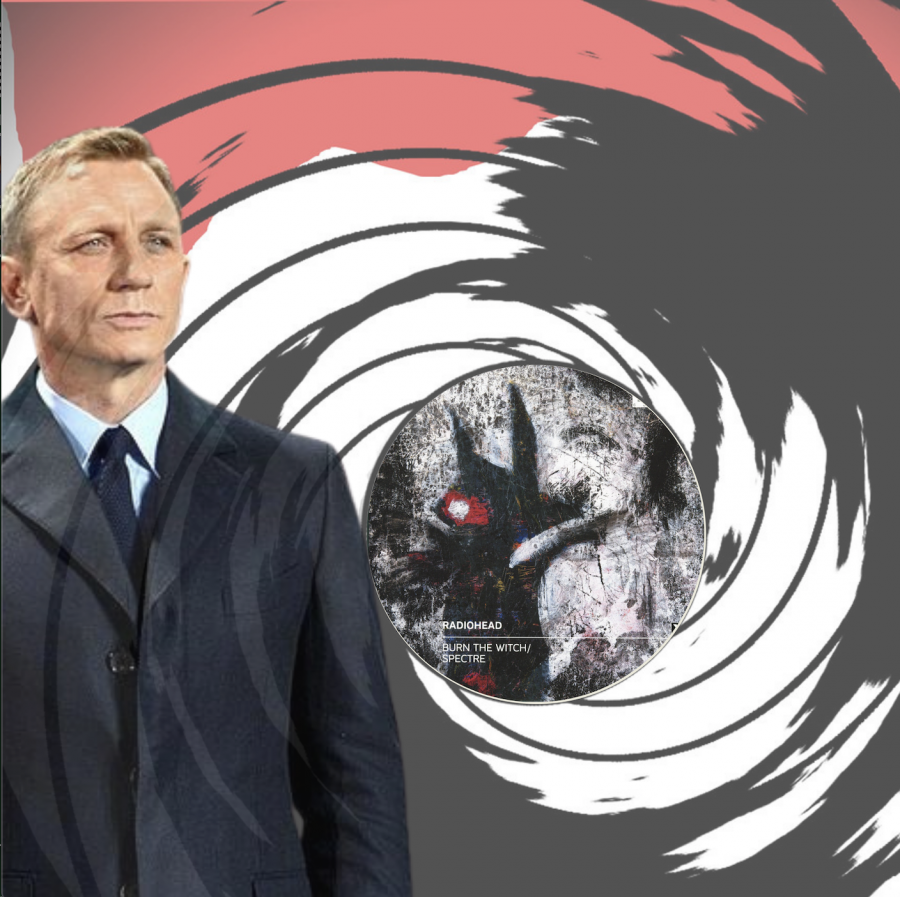It’s strange how world shattering epiphanies always happen late at night.
It was around 11 o’clock on a Saturday night. Earlier that day, my dad had scored tickets for the recent James Bond film “No Time to Die.” I’d been watching these movies with my dad since I was a kid and I had promised my editor a review on it, so Bond was on the brain.
I was aimlessly scrolling through YouTube when, as if by chance, a video appeared: Listening In’s “How Radiohead Wrote the Perfect Bond Theme”.
Radiohead?
Since when was Radiohead involved with a Bond theme? If this were any other night, I would’ve skipped over this video but I had nothing else to do, so I took a chance. Turns out, Radiohead were the original pick to do the theme for “Spectre,” (which was also titled “Spectre”), and they had postponed production on their then-upcoming album to work on it.
With this knowledge, I hit play; and the song began.The piano kicked in and the narrator began to speak about chords and bars, but all I could hear was the piano. As soon as I heard Thom Yorke’s unmistakable voice cut in, the rest of the video cut out. I immediately paused it, hunted “Spectre” down on Spotify and sat there as its melody washed over me. The hair on my arms didn’t just stand on end, they seemed to sway while chills ran over me in waves. I was bewildered — how in the world was this song cut?
I could repeat what others have said: that it sounds at home in both a Bond film and a Radiohead album. That much is true and it really does sound like the sexy, spy cousin of “Pyramid Song” or the equally forlorn spouse of “Exit Music (For A Film).”
I could say that but for me, it’s about what I see.
There’s a mental image that appears when I hear “Spectre” — that of a Victorian Gothic couple slow dancing as their manor burns down around them. It’s a fitting image the more I think about it: this track is dark, mysterious, mournful, romantic and fatalistic.
“The only truth that I could see, is when you put your lips to me.”
It’s in the way the strings lurch as guitarist Jonny Greenwood’s film scores tend to do, almost like it’s melting in and out of the shadows. Or perhaps it’s the way the lyrics bemoan the hollowness of Bond’s soul, having lost everything he’s held dear by this point, “my hunger burns a bullet hole, a spectre of my mortal soul,” as well as his inner insecurities, “fear puts a spell on us, always second-guessing love.”
There’s the melodic dichotomy in the notes of “Listening In”’s video: the merging of the classic with the current, much like what “Spectre” did with the reintroduction of Blofeld and the sinister, eponymous organization. Lastly, that final, Bond-esque flourish at the end. That parting shot before it fades from view — its mission accomplished.
So why was the song “Spectre” rejected from the film “Spectre?”
Allegedly it was deemed “too melancholy” for the final product, which I find painfully ironic. The 007 series hasn’t been afraid to get melancholic. Anyone who’s seen “On Her Majesty‘s Secret Service” or “Casino Royale” is aware of that.
Dare I say “Spectre” didn’t even deserve this song? The film wasn’t a cringe fest like “A View to a Kill,” but it wasn’t 007’s most memorable outing either.
Don’t get me wrong, the Sam Smith song they ended up using is wonderfully orchestrated, but it pales in comparison to the elegiac beauty that is Radiohead’s aspirant theme.
When Thom Yorke resigns “Spectre has come for me” in the final lines, the feeling is mutual because “Spectre” has come for me too, but I surrender willingly.
Morgan Ray is a junior studying journalism and media studies.







